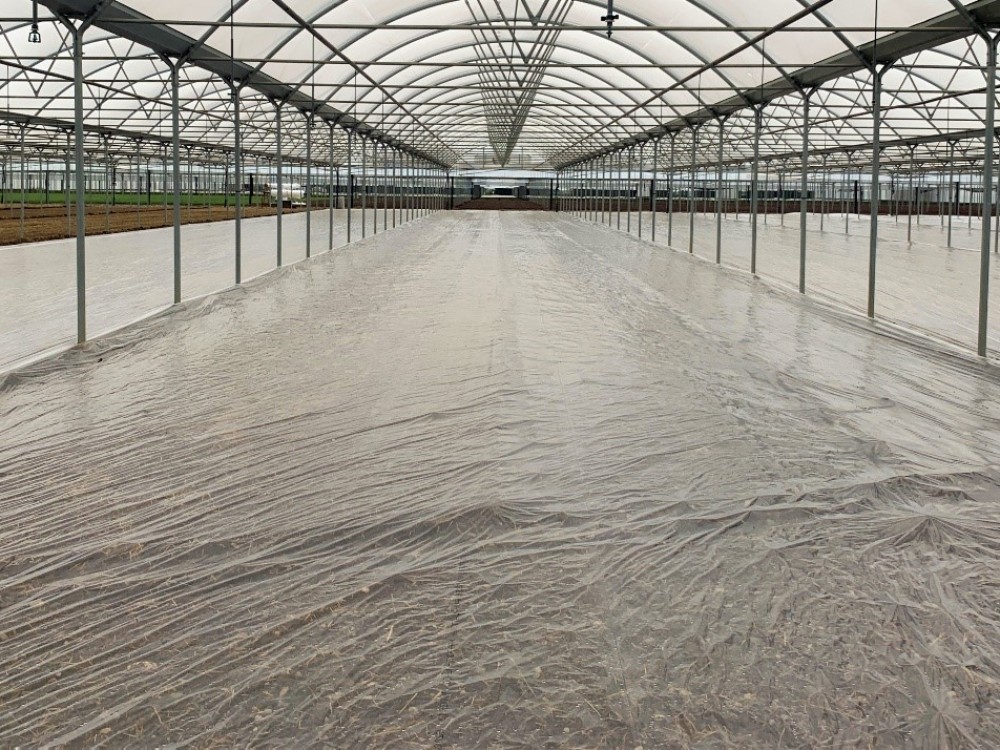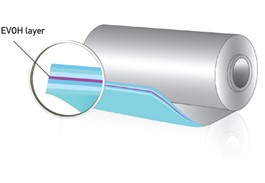
Discover how Totally Impermeable Films (TIF) offer an efficient, cost-effective, and sustainable solution for soil disinfection and pest control.
Introduction
Plastic films play a crucial role in modern soil disinfection techniques, particularly in chemical fumigation and solarization. Soil solarization and fumigation films are aimed at controlling soil-borne pests, pathogens, and weeds. They are crucial for modern farming, particularly in high-value crop production, where soil health directly impacts yield and quality. They create a sealed environment that maximizes the efficacy of disinfection by maintaining favorable conditions — whether thermal or chemical — for a sufficient duration. The type and quality of the film used significantly influence the success of both methods, with newer materials like Totally Impermeable Films (TIF) offering enhanced performance and environmental protection.
The use of plastic films for soil solarization and fumigation
Most disinfectants are recommended by their manufacturers to be covered with plastic films for better action and to prevent vapors from leaking into the atmosphere. However, even in those cases where covering is not mandatory, the use of plastic film increases the effectiveness of the chemical and protects the greenhouse cover from the harmful effect of sulfur and chlorine which may be contained in most disinfectants.
Plastika Kritis is of the first companies in the world to develop impermeable VIF (virtually impermeable films) for soil fumigation. VIF are films with a polyamide layer that acts as barrier to gases. They have been used successfully over the years with a variety of fumigants, including methyl bromide, dichloropropene, chloropicrine, metham sodium, dazomet, etc. but their use is rapidly being replaced by TIF (Totally Impermeable Films).
Since 2015, with the 7-layer extrusion technology, Plastika Kritis has become one of the major producers of EVOH-based Totally Impermeable Films (TIF) with even lower permeability to gases than VIF.
The science behind TIF
The core of TIF’s functionality lies in its barrier layer, typically made from ethylene-vinyl alcohol (EVOH), a polymer with much better barrier properties than polyamide, which reduces permeability of TIF by up to 10 times relative to VIF.

Initially developed to comply with stricter regulations, TIF has since found widespread use in the U.S., Europe, and other high-value cropping regions and offer multiple advantages: enhances fumigation efficacy, reduces chemical usage, and aligns with sustainable agricultural practices.
Plastika Kritis’ TIF films ORGATIF® and EVOSEAL® are 7-layer co-extruded with EVOH and can be used broadcast fumigation application or mulch. Certified for use with most fumigants (1,3-D, chloropicrin, DMDS) by authorities; provide extremely low gas permeability, superior fumigant retention, lower application rates, and high mechanical strength.
Benefits of ORGATIF® and EVOSEAL®:
ORGATIF® and EVOSEAL® can be equally effective for soil solarization, by combining the benefits of soil-solarization and mulching as well as in combinations of soil-solarization with various chemical soil disinfectants thereby increasing their efficiency.
- Improved fumigant retention: TIF retains fumigants in the soil longer than standard films, increasing exposure time for pests and pathogens. This leads to more complete disinfection, especially in deeper soil layers.
- Efficient and accelerated solarization: TIF traps the gases that are generated by the high temperatures under the films and these suffocate the pathogens. As a result, it is possible to reduce the time needed for solarization to 4–5 weeks.
- High mechanical strength: much better tear propagation strength and thus can be installed in a faster way.
- Stabilized for longer soil retention: it can remain in the soil for reuse as mulch, ensuring better control of weeds and water saving of irrigation water
- Improved crop yields and quality: More effective soil disinfection contributes to healthier plants, leading to better yields and marketable produce
- Uniformity of control: The use of TIF reduces the variability in fumigation outcomes, helping ensure consistent field performance.

Cost-effectiveness
While Totally Impermeable Films (TIF) may have a higher upfront cost, they offer significant long-term economic benefits that make them a cost-effective choice for many growers.
- Reduced dosage requirements: as less fumigants escape into the air, growers can often use lower application rates without compromising efficacy, directly cutting down on chemical input costs
- Improved control of soil pathogens achieved with TIF results into fewer crop losses and reduces the need for reapplication or supplementary treatments, thus savings in labor, fuel, and time.
Sustainability and environmental impact
TIF makes fumigants more targeted, effective tools, enabling soil disinfection with greater precision and effectiveness.
- Reduced Air Emissions: TIF reduces the release of volatile organic compounds (VOCs) and fumigant gases, preserving air quality and protecting workers from harmful gases.
- Water Protection: With better soil retention, fumigants are less likely to leach into groundwater or runoff into surrounding ecosystems.
- Support for Integrated Pest Management (IPM): TIF is compatible with IPM strategies that aim to reduce chemical dependence by combining physical, cultural, and biological controls.
- Fully recyclable: while VIF is difficult to recycle and the recycled material is of a downgraded quality
Conclusion
The use of Totally Impermeable Films (TIF) in soil disinfection represents a significant step forward in agricultural best practices. By improving the efficacy of soil fumigants while lowering environmental emissions and chemical inputs, and accelerating soil solarization, TIF offers a holistic solution that aligns with both economic and environmental objectives for growers seeking an efficient, cost-effective, and environmentally responsible approach to soil disinfection and soil solarization.
Learn More about Plastika Kritis’ soil disinfection films
Contact us for more technical information about our specialized TIF films ORGATIF® and EVOSEAL®.
